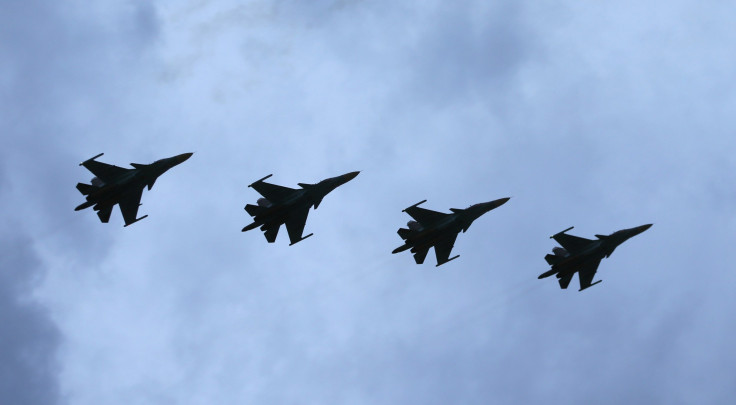Russian Military Aircraft Endanger Civilian Planes, Turn Off Transponders, US Ambassador To NATO Says

Russian military planes that turn off their transponders and neglect to send flight plans to air traffic officials have endangered civilian aircraft, the U.S. ambassador to NATO said Monday. U.S. Ambassador Douglas Lute pointed to “multiple incidents” in which Russian military planes have failed to properly communicate, making it difficult for civilian air authorities to track their movements.
“These Russian actions are irresponsible, pose a threat to civilian aviation and demonstrate that Russia is flagrantly violating international norms,” Lute told a press conference, according to Reuters. Meanwhile, British Foreign Secretary Philip Hammond expressed “concern” Monday regarding Russia’s “extremely aggressive probing” of NATO air defenses. “It is entirely appropriate for NATO countries in particular to work together to respond to what is a change of Russia’s dealings with NATO and indeed the non-NATO European countries,” he told British lawmakers.
NATO flight missions to intercept Russian military aircraft are up 50 percent in 2014 compared to last year’s totals, the organization said in November. "This pattern is risky and unjustified, so NATO remains vigilant. We are here and we are ready to defend all our allies against any threats,” NATO Secretary-General Jens Stoltenberg said Nov. 20.
Growing concern about Russian air activity is the latest sign of increased military tension between Russia and the West. Russian Defense Minister Sergei Shoigu announced Nov. 12 Russia would extend its long-range bomber patrols as far as the Gulf of Mexico and the Arctic Ocean. “In the current situation we have to maintain military presence in the western Atlantic and eastern Pacific, as well as the Caribbean and the Gulf of Mexico,” he said in a statement.
Soon after, Stoltenberg criticized Russia for its purported “very serious” military buildup on both sides of the eastern Ukrainian border. Russian troops, tanks and artillery have been spotted in the region, NATO said. Russian officials denied the charges.
“Russia has a choice. Russia can either be part of a peaceful negotiated solution [in Ukraine] or Russia can continue on a path of isolation,” Stoltenberg said at the time. “The international community calls on Russia to be part of the solution.”
© Copyright IBTimes 2024. All rights reserved.












